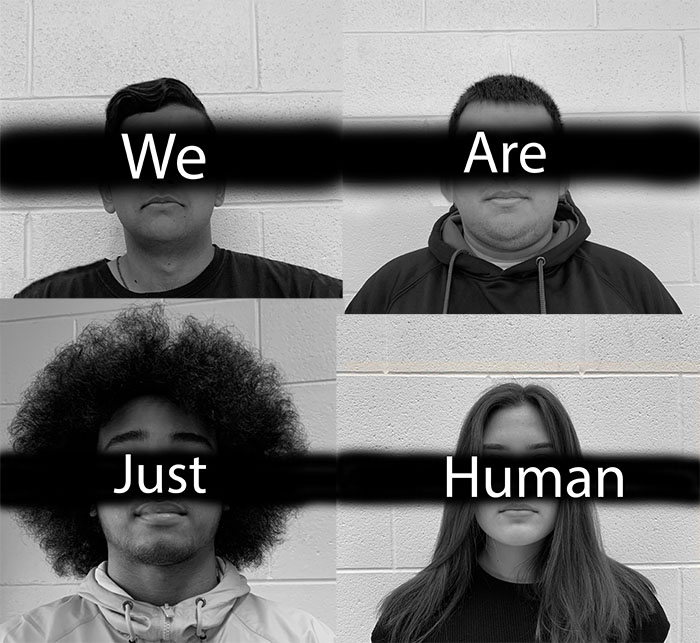Racism runs deeper than just overt acts
Students of difference racial backgrounds pose for photo– we are just human.
I have experienced and been aware of a fair share of directly racist comments that have occurred in District 99. For example, my freshman year I was walking down the hallway when a boy yelled an Asian racial slur. And– obviously– on numerous occasions I have heard white people use the N-word.
These are instances of direct, overt racism. However, we do not talk about other actions that may not seem as racist at face value but actually are.
It’s like how when I open my Snapchat and see people singing the N-word to a song. Or when I hear my classmates mimicking other ethnic groups in a negative way.
Why is it considered OK to make jokes about minorities? It’s not.
Why is it OK for white people to walk around wearing a durag, but nobody calls them out for culturally appropriating the black community?
These instances seem like they are more subtle, and they are. There is a difference between stating you hate racial or ethnic groups and making jokes about them. Although they are different, both actions are racist.
People believe that racism is only speaking their discontent for a certain race. It’s not. Racism is everything stated above– all are racist.
Now I understand that when it comes to subtle comments regarding race, there is a lot of gray area in terms of what is offensive or not to somebody else. Everybody’s feelings are subjective, which should just be more of a reason to not make these comments as it is only a matter of time before you hurt somebody’s feelings.
Just because you say these things doesn’t necessarily mean you’re a bad person, you just need to be more cognizant of certain things you say that can offend someone else. Although hurting someone may not be your intention, your actions always have consequences.
So, no, it’s not OK to say the N-word because it’s in a song. And it’s not OK to reinforce racial stereotypes and make the excuse, “It’s OK, we’re friends.”
If people want racism to be over or at least be eliminated from our school, it takes more than just stopping people from saying something offensive, but also looking at yourself and what you can personally do better to refrain from offending others.
It doesn’t matter if your friend gives you the N-word pass, or they laugh at your offensive jokes. They could feel uncomfortable.
Everyone can agree that blatantly discriminating against a certain racial/ethnic group is racist. But not everyone agrees on the subtle forms of racism — we need to. So start by being an advocate for this social change.
You don’t have to say you hate a certain group to be racist. Racism exists in many forms of everybody’s lives, whether you’re white or not. And it’s important that everybody at DGS works together instead of re-enforcing stereotypes and acts of discrimination against each other.


